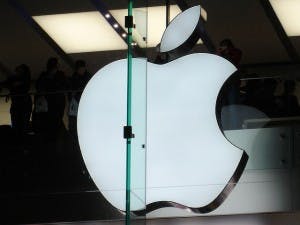Mozilla, the company behind the Firefox browser, has been working on a mobile operating system. Firefox OS will be available on smartphones starting in June. Devices running the OS won’t appear in the US until 2014, but regardless, it’s worth asking: how many different mobile operating systems can the market support?
Too many mobile operating systems

That leaves out the mobile operating systems that existed before and have since died off, most notably, Palm’s WebOS. Hewlett-Packard Company (NYSE:HPQ) spent $1.2 billion to acquire Palm in 2010, mostly for its mobile operating system. (In 2011, Hewlett-Packard Company (NYSE:HPQ) suddenly pulled the plug on its WebOS efforts. In recent months, the company has adopted Android for its Slate 7 tablet, and Windows 8 for its ElitePad enterprise offering.)
PCs as a guide
If the history of the personal computer is any guide, the market simply won’t be able to support so many mobile operating systems.
As PCs developed in the early 1980s, there were a number of operating systems vying for dominance. But when the market finally settled in the mid-1990s, there were just two. At its peak, Microsoft’s Windows had over 90% of the PC market, while Apple Inc. (NASDAQ:AAPL) held less than 10% (to be fair, Linux has long held a token portion of the market).
History already seems to be repeating itself. Like Windows in the early 1990s, Android has surged in popularity and currently has over 70% of the global smartphone market. Apple Inc. (NASDAQ:AAPL) remains a large secondary player, with just over 20% of the market.
Applications will be a limiting factor
The number of viable operating systems is limited by the economics of application development. Companies that develop mobile applications simply can’t afford to expend the resources necessary to develop for a wide array of operating systems.
While most reviewers have remarked that Research In Motion Ltd (NASDAQ:BBRY)’s BB10 operating system is well-designed and easy to use, a near universal criticism has been the lack of apps.
Wired writes, “No Instagram and no Netflix, most notably. Also, no GroupMe, no Flipboard and no Path. No official Flickr app…it’s painful to go without the apps that you use on a daily basis that might not make headlines.”
Windows Phone faces much of the same issues. In its review of Nokia Corporation (ADR) (NYSE:NOK)’s flagship Lumia 920, CNET lists lack of apps as a reason to skip the device. In its separate review of the Windows Phone 8 operating system, CNET recommends users who need a robust app selection “stick with the more fully formed Android and iOS.”
Both Microsoft and Research In Motion Ltd (NASDAQ:BBRY) have been aware of the problem, and have taken steps to address it. Research In Motion Ltd (NASDAQ:BBRY) offered to pay developers $10,000 for apps ahead of BB10’s launch, while Microsoft is currently paying $100 per app.
Moreover, despite the fact that Android has the lion’s share of the global smartphone market, app weakness has been a frequent criticism of the operating system by Apple Inc. (NASDAQ:AAPL) loyalists. Many applications, such as Instagram, have been developed on Apple’s iOS and then only later ported to Android.
How much longer will the operating system matter?
It’s slightly disingenuous for me to compare Firefox OS with Windows Phone and BB10. Firefox OS isn’t really an operating system at all, but rather a souped-up mobile browser.
With Firefox OS, Mozilla is banking on the power of HTML5. Rather than create separate apps for each mobile operating system, developers can simply code a website with HTML5. In theory, these complex websites should function as well as apps, rendering the entire operating system irrelevant.
To date, apps have continued to dominate HTML5. Although developers would likely prefer to live in a world where they don’t have to code for numerous operating systems, the integration offered by traditional apps still reigns supreme. Facebook Inc (NASDAQ:FB), for example, attempted to go the HTML5 route years ago, but has long since given up on the strategy.
Mozilla’s CEO Gary Kovacs thinks things are different nowadays. According to Gigaom, he believes that innovations in web technology have made HTML5 a viable alternative to apps. Ultimately, if Kovacs is right, it could have much larger implications. If the mobile operating system doesn’t matter, then companies that live by it have much to lose.
Apple Inc. (NASDAQ:AAPL), in particular, would be most disadvantaged, as the majority of the company’s profits come from its iOS devices. If consumers can get the same experience purchasing a cheaper phone, there’s no reason to buy into Apple’s walled garden.
Google Inc (NASDAQ:GOOG), who already gives Android away for free, likely wouldn’t care. In fact, the company’s Chrome OS already uses a similar strategy in the desktop space, relying on the web to replace traditional PC apps.
Research In Motion Ltd and Microsoft, like Apple Inc. (NASDAQ:AAPL), make money off their operating systems directly. Improved HTML5 would benefit them in the sense that it would lessen their app ecosystem weaknesses, yet, at the same time, it would undermine the need to pay for their exclusive operating systems in the first place.
Will history repeat itself?
If history repeats itself, Google Inc (NASDAQ:GOOG)’s Android and Apple’s iOS have the mobile operating system game in the bag. Like Windows in the 1990s, such robust app ecosystems will make it difficult for new mobile operating systems to compete.
Yet, investors should keep an eye on Firefox OS. If Mozilla’s basic premise holds true — that apps can be fully replaced by HTML5 websites — it could have enormous consequences for the sector. In that case, this discussion would be completely moot, for mobile operating systems would no longer matter.
The article Yet Another New Mobile OS Is Coming This Year originally appeared on Fool.com and is written by Joe Kurtz.
Copyright © 1995 – 2013 The Motley Fool, LLC. All rights reserved. The Motley Fool has a disclosure policy.
